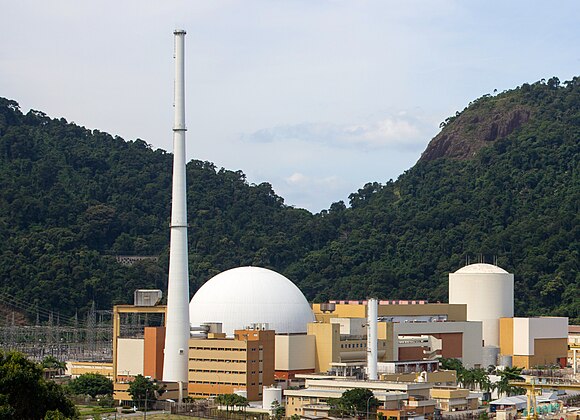Nuclear power plant as viable option for Ghana’s next baseload solution
By Jerry John Akornor
Nuclear power plants have been a reliable source of energy for many countries around the world. Ghana, a country in West Africa, has been exploring the possibility of building a nuclear power plant as its next baseload solution. This move is aimed at addressing the country’s energy needs and reducing its dependence on fossil fuels.

The demand for electricity in Ghana has been increasing steadily over the years, and the country has been struggling to meet this demand. The current power generation capacity in Ghana is about 4,000 MW, which is not enough to meet the country’s energy needs. The government has been exploring various options to increase the country’s power generation capacity, and nuclear power is one of the options being considered.
Nuclear power plants are known for their reliability and efficiency. They can generate large amounts of electricity consistently, which makes them ideal for baseload power generation. Unlike renewable energy sources like solar and wind, nuclear power plants can generate electricity 24/7, regardless of weather conditions.
Another advantage of nuclear power plants is that they do not emit greenhouse gases, which makes them a cleaner source of energy compared to fossil fuels. This is important for Ghana, as the country is committed to reducing its carbon footprint and mitigating the effects of climate change.
Building a nuclear power plant in Ghana will require a significant investment, but the benefits are worth it. The plant will create jobs and boost the country’s economy. It will also provide a reliable source of energy that will help to attract foreign investment and support the growth of various industries.
However, building a nuclear power plant requires careful planning and management. Safety is a top priority, and the plant must be designed and operated in a way that minimizes the risk of accidents. The government must also ensure that the plant is properly regulated and that the waste generated by the plant is safely disposed of.
In conclusion, a nuclear power plant is a viable option for Ghana’s next baseload solution. It will provide a reliable source of energy that will help to meet the country’s growing energy needs. However, the government must ensure that the plant is designed and operated safely and that the waste generated by the plant is properly disposed of. With careful planning and management, a nuclear power plant can be a valuable asset for Ghana’s energy sector.


DONATION TO SUPPORT THIS WEBSITE: 0599896099 +233599896099 Thank you for your contribution!
Related




















































